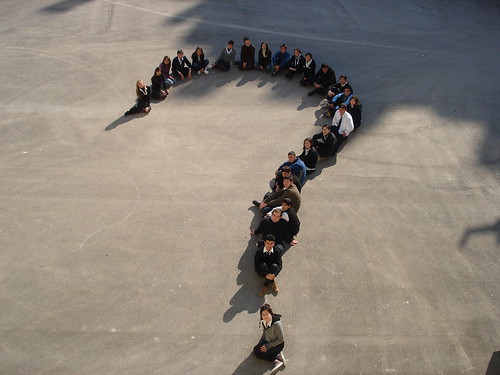“Mentor/Mentee 101: Developing a Career Essential Relationship†is this month’s topic for ALA/NMRT (New Members Round Table) listserv. One of the contributors to the discussion mentioned the experience of unclear expectations on both a mentor’s and a mentee’s side. I was sending a reply to this discussion Friday, but the listserv didn’t let my email through. So I failed in posting my reply. But it got me thinking a bit about mentoring in librarianship.
I think having a mentor can be of great help for new librarians. Â But not all librarians necessarily need official mentors. Often new librarians can rely on their supervisors or other colleagues as their unofficial mentors. Â This approach works best at a large organization where a new librarian can find experienced colleagues with similar interests to hers/his. But I also heard about situations where colleagues tend to hoard knowledge rather than sharing. Also for a new librarian who works as a solo-librarian or at a small library where each librarian specializes in a different field, participating in a mentoring program can be quite valuable.
I suspect that a mentoring relationship through emails between two librarians who do not know each other and work at different organizations would be inevitably less strong than between those who know each other well and work at the same place. On the other hand, via email, mentors and mentees can discuss any questions and issues without worrying about the local context and/or, sometimes, politics.
(Image from Flickr: http://farm2.static.flickr.com/1098/1404539812_16fdf956d0.jpg)
I count myself lucky having found a great mentor through the first mentoring program I participated in.  I was paired with a mentor whose work is very similar in nature to mine. Common interests make it easy to start a conversation. One thing I excel at is asking questions. I may not necessarily understand answers, but I ask a lot of questions. Often I got illuminating answers, which come from my mentor’s experience. And those answers helped me understand certain things that at first glance looked strange or downright irrational to me. So if I have one recommendation for new librarians in mentoring relationship, that would be to ask lots of questions without worrying about whether they are stupid or inappropriate. At what other times would one be free to ask such questions if not when a new librarian?
My expectation for the mentoring program was relatively simple — to find someone experienced who can give me advice about things I have difficulty in understanding, not so much about career development or skill sharing. Â So I am not sure how mentoring would workfor more experienced librarians with different kinds of expectations. But one thing I try to remember as a mentee is that mentoring is a big time investment for mentors. So I try to be specific, honest, and clear as much as possible when I ask questions via e-mail.
I wonder when one graduates being a mentee and can begin to help others as a mentor. Maybe when there are less questions that strike one’s mind everyday?


I have been lucky to have gone through a formal mentoring program and to have informal connections that serve at mentor/mentee relationships.
The formal program I did was anonymous meaning that mentee/mentor were paired up and communicated through a system where neither knew the other’s identity. This had some serious benefits but in the end left me wondering who the person on the other end was.
I think it is helpful to have a mentor from within your library as well as from outside your library. An internal mentor can help with the politics. An outside mentor can see a much bigger picture and give you greater perspective. In the end I think this is where social networking comes in to play. Find someone you connect with and develop an informal mentoring or coaching relationship. I’m glad to see ALA establish these formal channels but I think people often overlook the value in the informal routes. Great post!
Thanks for the great comment! I am fascinated by the program that you mentioned which is completely hides the mentor/mentee identity. I wonder some specific benefits were intended by designing the mentoring program that way?
I agree that mentoring often takes place without involved parties noticing, nevertheless providing a great guidance for mentees. Looking back, I realize most of my ex-bosses were terrific mentors in generously sharing their knowledge and being open to questions and discussions. However, often this is not something that can be sought and formed by a mentee, and more depends on the initiative of a mentor. So having some mentoring programs to participate in when such an informal relationship is not easy to come by is great for new librarians in particular. 🙂